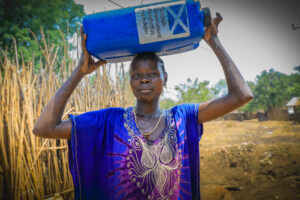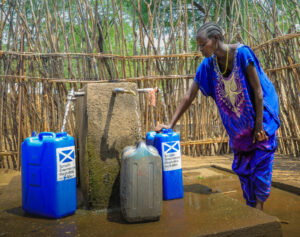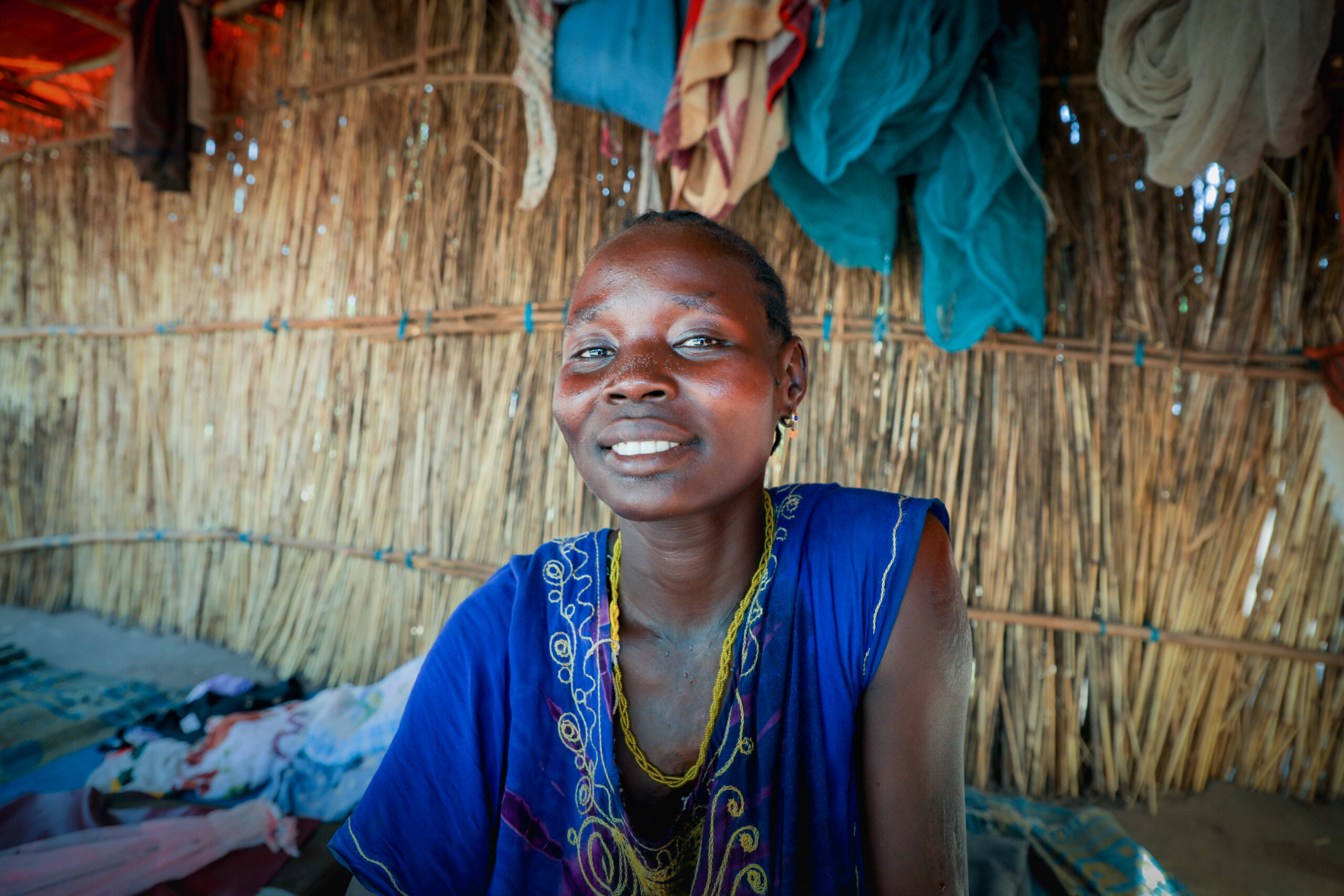By Liban Hailu, Oxfam in Ethiopia
In Ethiopia’s Gambella region, amidst various refugee camps that shelter around 380,000 people, lies Pinyudo camp – a home for those who have fled conflict in South Sudan. Here in Pinyudo, we meet Adugk Owitti, a refugee struggling to provide hope for her family amidst many challenges.
It’s been over a decade since Adugk, 35, fled the conflict in South Sudan with her four children. As a person living with disability, a legacy of a childhood fire accident, Adugk took a long and risky journey, enduring five days of walking with her children to reach Pinyudo camp, in Gambella, Western Ethiopia.
Despite reaching the safety of Gambella, Aduk struggled to get food for her children.
“Food was really hard to find,” Aduk explained. “My children suffered a lot with no meals, and they faced a lot of difficulty. During that time, I tried to help my family by gathering and selling firewood and making local alcohol to earn money,” she added.

Adugk relied on her resourcefulness, recalling her past livelihood of selling firewood to get water and sustain her family’s needs, she said: “Before, I used to sell firewood to buy jerrycans for water. Now, Oxfam has provided us with jerrycans and soap, easing the burden of daily survival.” Many refugees have lacked such basic essentials for years.
The absence of proper sanitation facilities was another big challenge for Adugk and many refugees like her in Gambella. “We used to go outside to use the toilet”, she explained, adding: “When we go out into the bushes at night, we worry that something bad will happen, especially to my children. It’s risky to go out for the toilet at night. Now with the help from Oxfam, I have built my own latrine.”
Adugk is grateful that now with a self-built latrine close to her own home, there is dignity, and she does not have to worry about the safety of her family, as well as sanitation issues.

Adugk is just one of the refugees who have benefitted from greater support provided by Oxfam as a result of a £125,000 funding boost from the Scottish Government’s Humanitarian Emergency Fund.
The funding, announced at the beginning of March, has enabled Oxfam to begin upgrading and repairing the existing water supply systems and support community-led sanitation initiatives. This includes building 100 new latrines and distributing vital supplies, such as 300 menstrual hygiene kits and 500 ‘WASH’ kits which are made up of two jerry cans and five bars of soap each.
You can watch and read more powerful stories of personal resilience amidst the challenges of refugee camp life in ‘Out of Sight: Displacement and survival in Gambella, Ethiopia‘.
Oxfam has been supporting refugees in Gambella with clean and safe water for drinking since 2014, however due to dwindling funds and aging infrastructure the existing water supply system is proving insufficient to meet the existing needs. Oxfam hopes the Scottish Government’s aid will provide impetus for other governments and donors to act, saying a grave funding shortfall remains, placing our continued operations in Gambella in jeopardy.
“Conflict, climate change and dwindling funding are pushing refugees, mostly women and children, into extreme hunger,” explains my colleague, Koang Kay, who works on Oxfam’s response in Gambella. “If no new funds are available, we will be forced to exit certain camps in the next six months, leading to disaster. As one of the forgotten refugee crises in the world, lives here are at risk.”
Please, if you can, donate to Oxfam’s Emergency Response work globally.
Oxfam’s emergency response in Gambella was supported by the Scottish Government.
![]()
